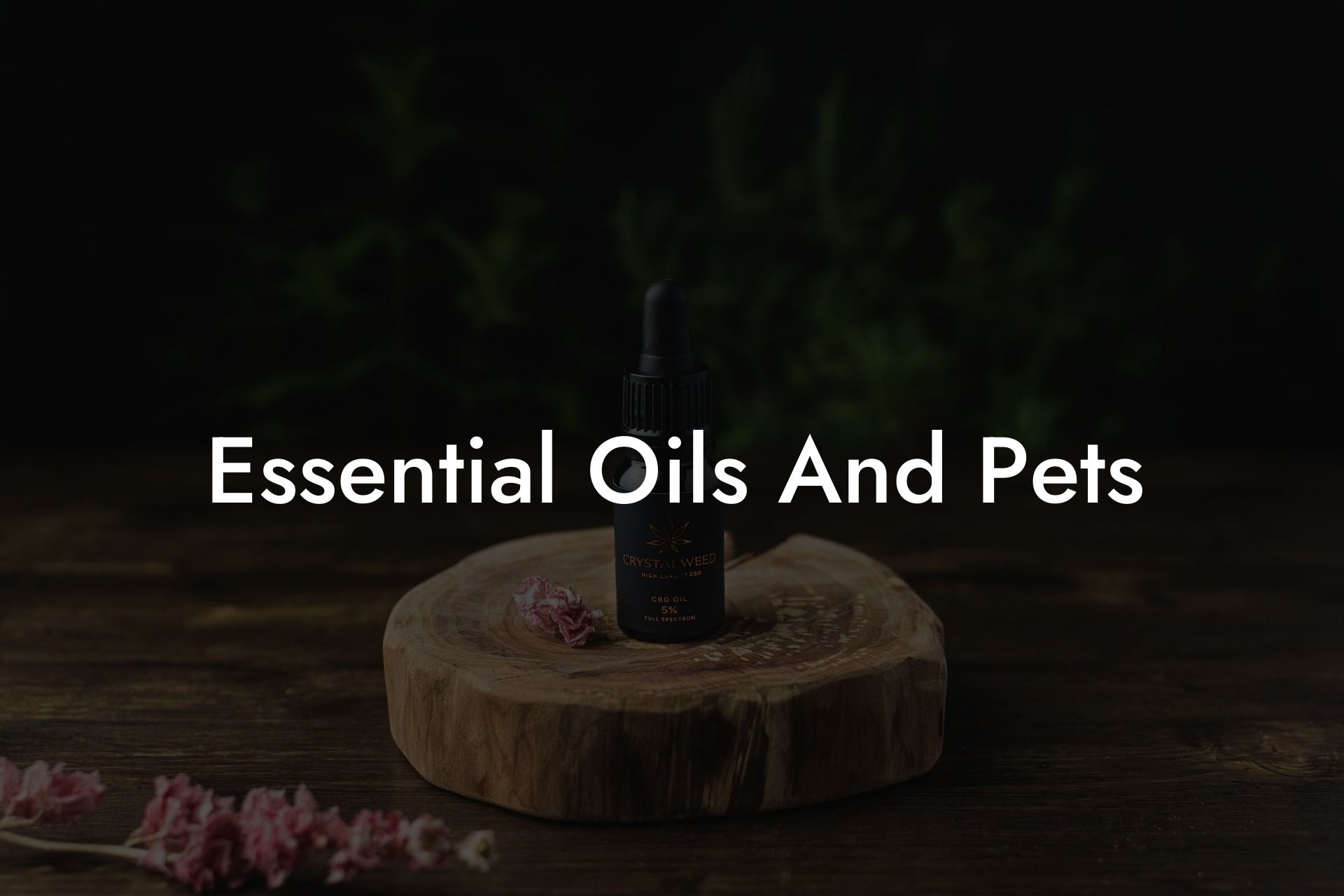As pet owners, we always want the best for our furry companions, keeping them healthy, happy, and safe. Essential oils have become increasingly popular in our own lives, offering health benefits and promoting relaxation. But have you ever wondered how these oils might affect your pets? In this blog post, we will explore the safety, benefits, and precautions necessary when using essential oils around our pets.
Table of Contents
Can Pets Benefit from Essential Oils?
Yes, pets can also experience the benefits of essential oils, just like us. When used correctly, these oils can help support the physical and emotional health of your pets. Some potential benefits include:
- Reducing stress and anxiety
- Improving sleep quality
- Repelling fleas and other insects
- Helping manage skin conditions
- Alleviating joint pain and inflammation
Which Essential Oils Are Safe for Pets?
It’s crucial to choose oils that are both safe and suitable for your pet’s specific needs. Some essential oils are toxic to pets, so always do your research and consult a veterinarian before introducing any new oil. Generally, the following essential oils are considered safe for pets when used in moderate amounts and appropriate dilutions:
- Lavender
- Chamomile
- Cardamom
- Frankincense
- Ginger
Which Essential Oils Should Be Avoided?
Certain essential oils can cause harm or irritation to your pets, and it’s essential to be aware of them. Some of these harmful oils include:
- Tea tree
- Cinnamon
- Clove
- Eucalyptus
- Garlic
It’s also important to remember that each pet is unique, and individual tolerance levels to essential oils may vary. Start with small amounts and watch for any adverse reactions before increasing use.
Precautions for Using Essential Oils Around Pets
To ensure the safe use of essential oils with your pets, follow these precautions:
- Consult a veterinarian: Before using any essential oils on or around your pets, consult your veterinarian for guidance and advice on safe usage and proper dilutions.
- Quality matters: Choose pure, high-quality essential oils from a reputable source to ensure the safety and efficacy of the oils for your pets.
- Proper dilution: Always dilute essential oils with a carrier oil before using them on your pets, as undiluted oils can cause irritation or other health problems.
- Never force: If your pet shows signs of discomfort or avoids the essential oil scent, do not force them to be exposed to it. Respect their preferences and find a different oil or method of use.
- Keep oils out of reach: Store your essential oils in a place that is inaccessible to your pets to avoid accidental ingestion or exposure.
Essential Oils And Pets Example:
Imagine that your cat has been showing signs of stress and anxiety, such as excessive grooming, hiding, or unusual vocalizations. After consulting with your veterinarian, you decide to try using a pet-safe essential oil to help calm her.
With your vet’s guidance, you choose a high-quality lavender essential oil, known for its calming properties. You dilute a few drops of the oil in an unscented carrier oil and gently massage it into your cat’s fur, making sure to avoid her eyes, nose, and mouth.
Over time, you notice your cat appears more relaxed and her anxiety-related behaviors have decreased. Remembering to always follow the safety precautions and consult with your veterinarian, you can continue to use essential oils to improve your cat’s emotional wellbeing.
Essential oils can play a powerful role in improving the health and happiness of our beloved pets. By understanding which oils are safe, recognizing potential hazards, and following the necessary precautions, we can harness the power of essential oils to enhance our pets’ overall wellbeing. If you enjoyed this article, don’t forget to share it with fellow pet owners and explore our other Oshu Oils guides for more essential oil tips and tricks. Check out the Oshu Oils range of pet-safe essential oils and start implementing the benefits of aromatherapy in your pet’s life today!





















